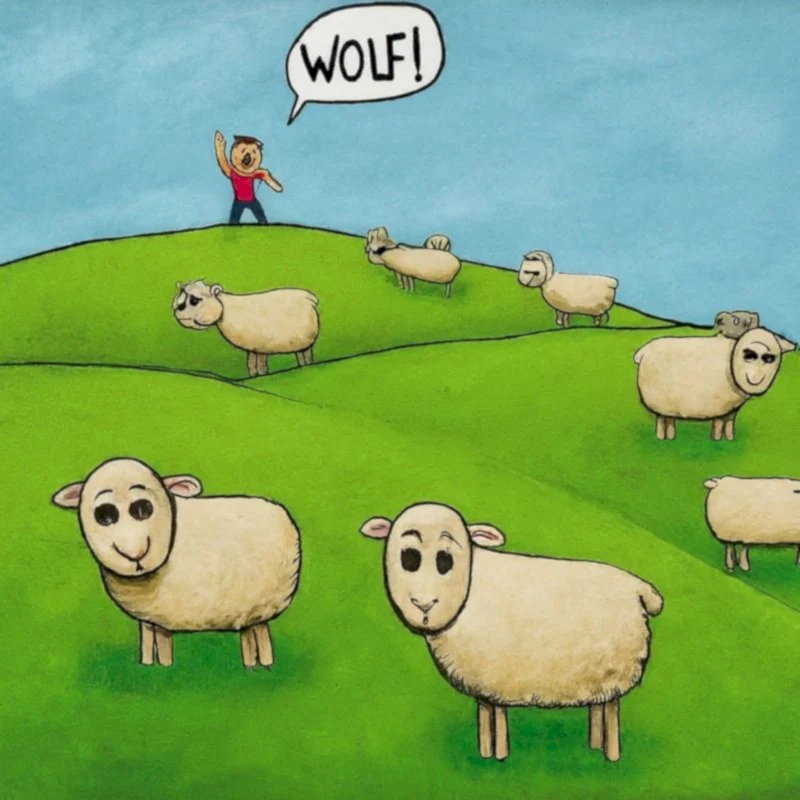The Boy Who Cried Wolf
In a village cradled by gentle hills and whispers of the wind, there lived a young shepherd boy. Tasked with guarding the village sheep, he spent his days under the vast, open sky. But the quietude of the pasture sparked a longing for excitement within his heart.
One day, inspired by a mischievous idea, the boy sprinted towards the village, his voice echoing with cries of “Wolf! Wolf!” The villagers, armed with nothing but concern and makeshift weapons, rushed to his aid, only to find their fears unfounded. The boy, unable to contain his amusement, revealed his jest. While the villagers returned to their daily grind, a wave of laughter trailed behind them, a reminder of their needless panic.
The boy, thrilled by the uproar of his ruse, couldn’t resist the temptation to deceive once more. And so, he cried “Wolf!” again, igniting a flurry of concern among the villagers who, once more, found themselves the butt of his joke.
But as fate would have it, the boy’s fabrications paved the way for his downfall. When a real wolf threatened his flock, his cries were met with skepticism. The villagers, once bitten, twice shy, dismissed his warnings as another ploy for attention. Left to face the consequences of his deceit, the boy learned a harsh lesson in trust and integrity.
The moral stitched into the fabric of this tale is as relevant today as it was in ancient times. It teaches us that honesty is the cornerstone of trust. By weaving the thread of truth into our words, we build stronger bonds with those around us. Conversely, deceit, even in its most benign form, can fracture the very foundation of trust we strive to uphold.
And so, “The Boy Who Cried Wolf” remains not just a story, but a beacon of wisdom, illuminating the importance of honesty in our lives.
Related Reads:
People also read:
